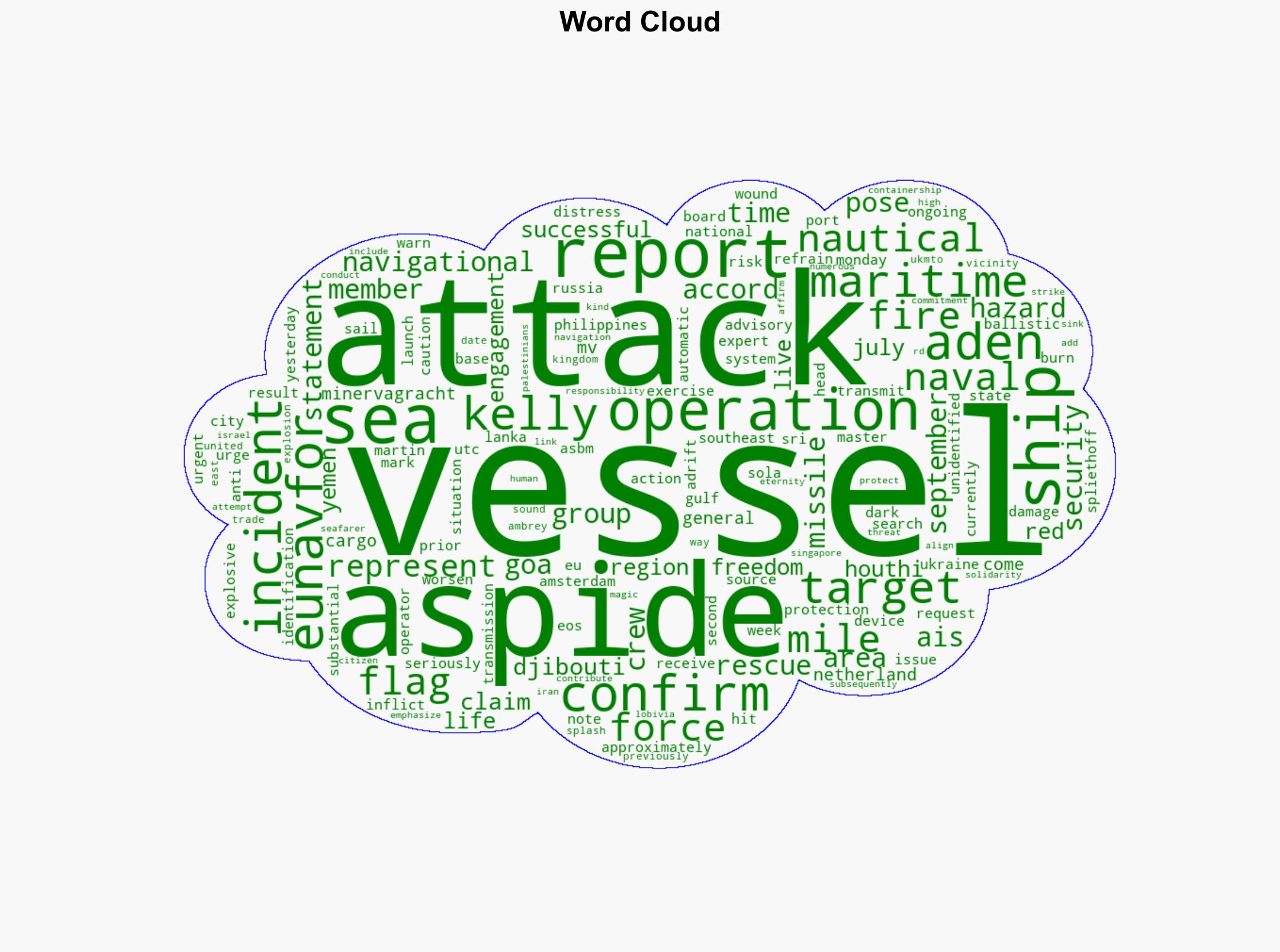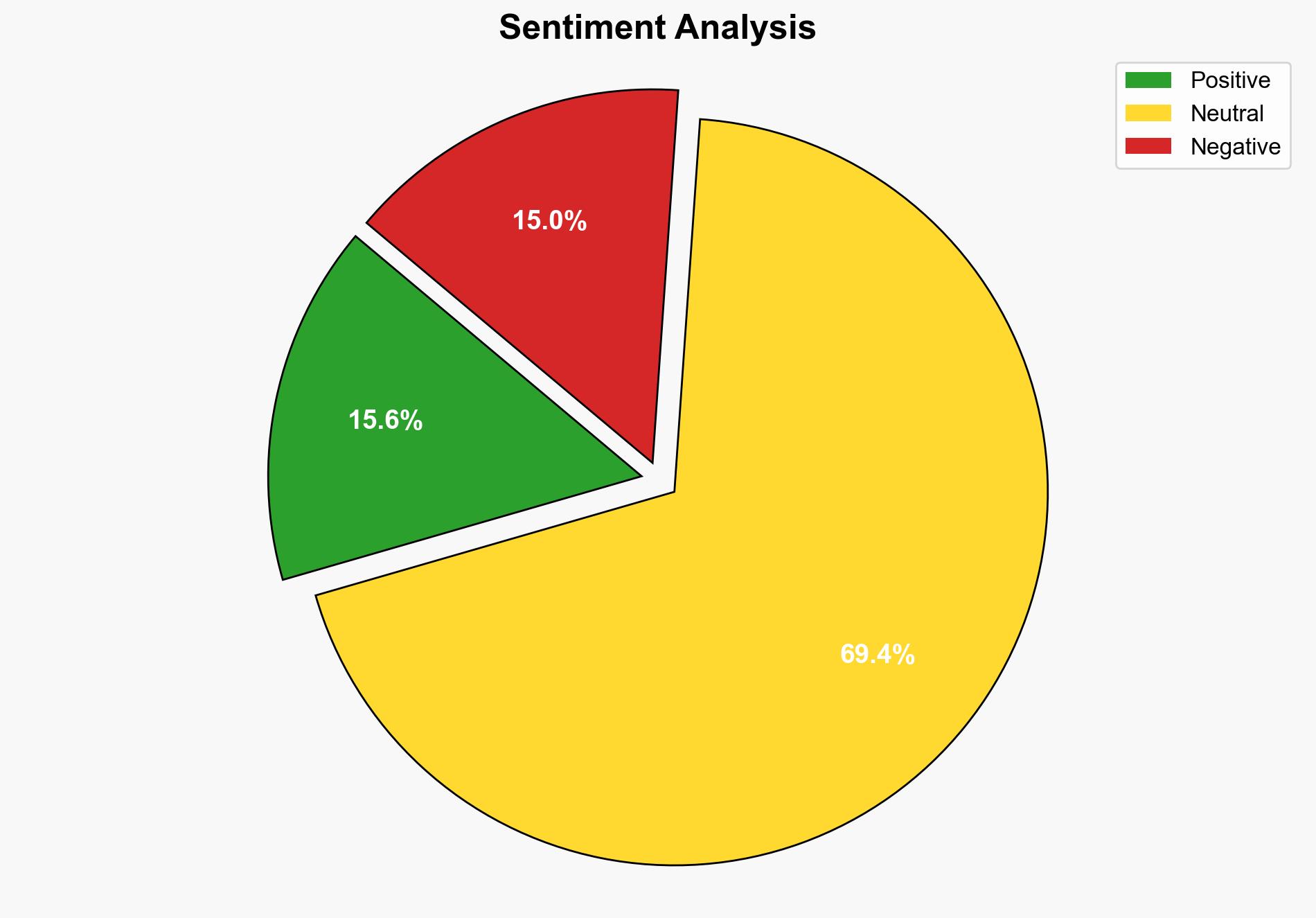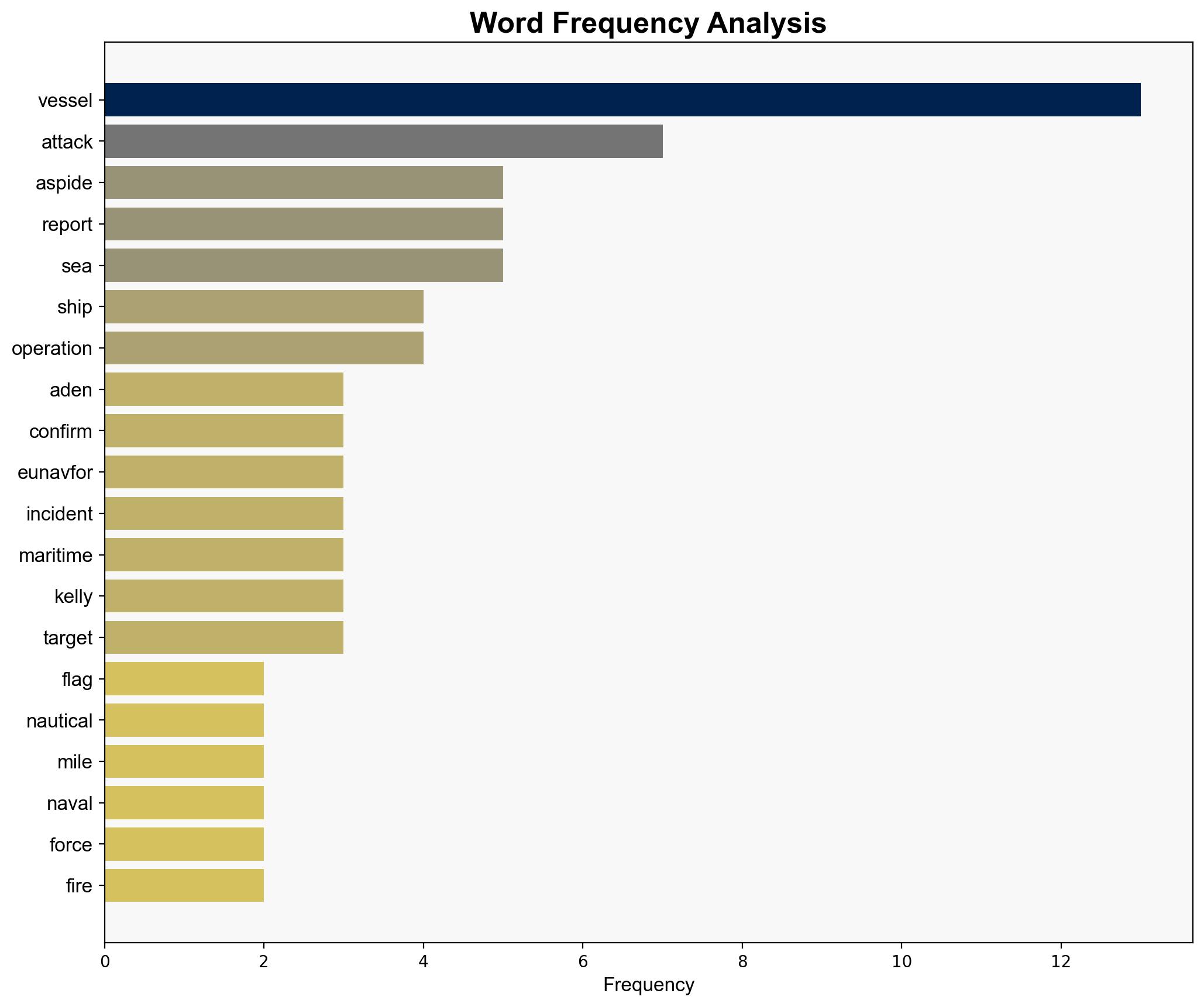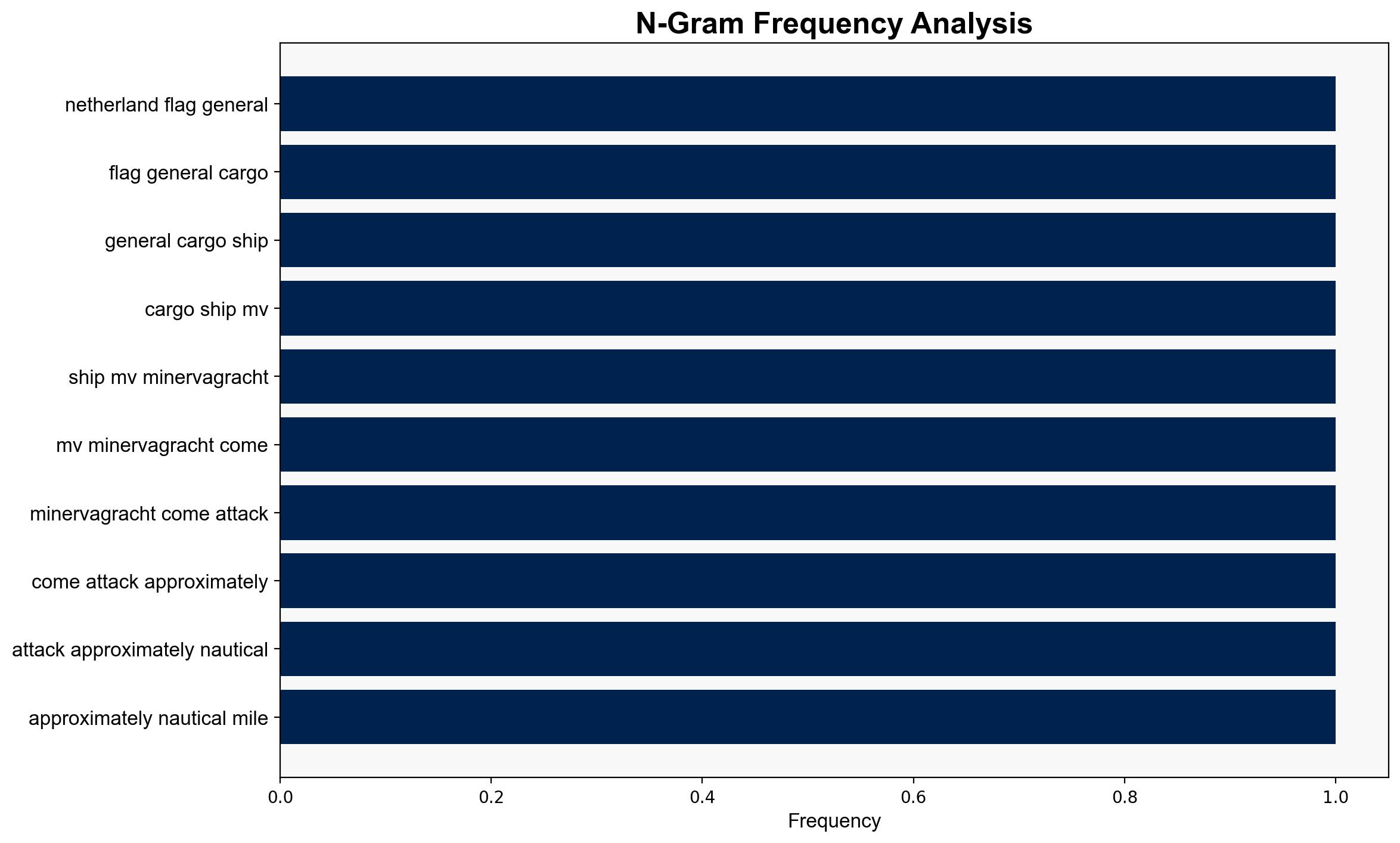Dutch Cargo Ship Reportedly Hit by Missile in Gulf of Aden Vessel Ablaze – gcaptain.com
Published on: 2025-09-29
Intelligence Report: Dutch Cargo Ship Reportedly Hit by Missile in Gulf of Aden Vessel Ablaze – gcaptain.com
1. BLUF (Bottom Line Up Front)
The most supported hypothesis is that the attack on the Dutch cargo ship in the Gulf of Aden was carried out by Houthi forces using an anti-ship ballistic missile (ASBM). This conclusion is drawn with moderate confidence due to historical patterns of Houthi attacks in the region and their known capabilities. It is recommended to increase naval patrols and enhance intelligence-sharing among regional allies to mitigate further risks.
2. Competing Hypotheses
Hypothesis 1: The attack was conducted by Houthi forces using an ASBM as part of their ongoing maritime campaign in the region.
Hypothesis 2: The attack was perpetrated by an unknown third-party group aiming to destabilize the region and disrupt maritime trade routes.
Using Analysis of Competing Hypotheses (ACH), Hypothesis 1 is better supported by the evidence. The historical context of Houthi attacks, their alignment with Iran, and previous similar incidents in the region lend credibility to this hypothesis. Hypothesis 2 lacks specific evidence or claims of responsibility from other groups, making it less likely.
3. Key Assumptions and Red Flags
– Assumption: Houthi forces have the capability and intent to target vessels in the Gulf of Aden.
– Red Flag: Lack of immediate claim of responsibility by any group, which could indicate a false flag operation or a new actor.
– Blind Spot: Limited information on the exact nature of the explosive device used, which could affect attribution accuracy.
4. Implications and Strategic Risks
The attack underscores the persistent threat to maritime security in the Gulf of Aden, potentially disrupting global shipping routes and escalating regional tensions. If Houthi involvement is confirmed, it could lead to increased military responses from regional powers, further destabilizing the area. Economically, insurance rates for shipping in the region may rise, impacting global trade.
5. Recommendations and Outlook
- Enhance naval presence and surveillance in the Gulf of Aden to deter future attacks.
- Facilitate intelligence-sharing among regional allies to improve threat detection and response times.
- Scenario Projections:
- Best Case: Increased patrols deter further attacks, stabilizing the region.
- Worst Case: Escalation of hostilities leads to broader regional conflict.
- Most Likely: Continued sporadic attacks with heightened security measures in place.
6. Key Individuals and Entities
– Martin Kelly, maritime security expert, provided analysis on the attack.
– Spliethoff, the Amsterdam-based operator of the vessel, confirmed the incident.
7. Thematic Tags
national security threats, maritime security, counter-terrorism, regional focus




